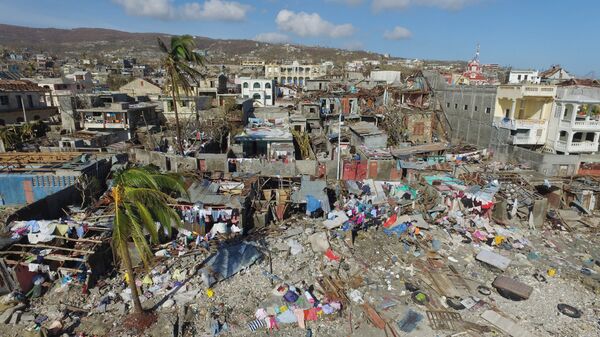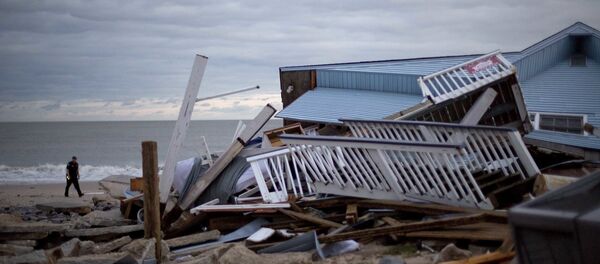"Some towns and villages have been almost wiped off the map," UN Secretary-General Ban Ki-moon told reporters.
The UN’s Under-Secretary-General for Humanitarian Affairs, Stephen O'Brien, has added that the damage is the worst humanitarian crisis since the 2010 earthquake, which left much of the nation in a shambles.
"Hundreds have died; at least 1.4 million people need assistance at this time; some towns and villages have been almost wiped off the map; crops and food reserves have been destroyed. At least 300 schools have been damaged,” O’Brien told reporters.
“These numbers and needs are growing as more affected areas are reached. Tensions are already mounting as people await help. A massive response is required. UN teams are working with local officials to assess needs,” he said.
— Fred Bentler (@Bentler) October 6, 2016
When the Category 4 hurricane struck Haiti on October 4, homes were completely leveled, livestock was killed in the wind and flooding, and water sources were polluted. Approximately 300,000 residents remain in shelters, which are low on supplies due to difficult transport conditions on damaged roads.
— AFP news agency (@AFP) October 9, 2016
“In 2016 almost 27,000 cholera cases have been reported in Haiti, and over 240 people have died,” the UN's Central Emergency Response Fund said in a statement last week. "Hurricane Matthew is feared to significantly worsen the situation and increase the risk of a larger outbreak."
The $120-million pledge from the UN is aimed at covering the needs of the nation for the next three months.
“The United Nations is mobilizing across all fronts to support the people, the Government and local groups such as the Red Cross in getting recovery under way as quickly as possible. I call on the international community to show solidarity and generosity – and to work together effectively in responding to this emergency,” O’Brien said.




